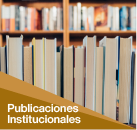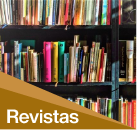Los Juegos Tradicionales como Estrategias Metodológicas de Enseñanza-Aprendizaje, Aplicadas en las Distintas Áreas Curriculares, con los Niños y Niñas de la I.E Unidocente Multigrado 501260 de Sencca, distrito Poroy, provincia Cusco
Fecha
2025-06-13Autor
Huillca Achahui, Casandra
Pumayalli Sihuin, Fabiola
Nivel de Acceso
Acceso AbiertoMetadatos
Mostrar el registro completo del ítemResumen
Este trabajo de investigación, lleva como objetivo general aplicar los juegos tradicionales como estrategias de enseñanza- aprendizaje. En este proceso encontramos que dentro de la comunidad educativa hay un amplio conocimiento y saberes sobre los juegos tradicionales, sin embargo, observamos un problema: estos saberes ya no están siendo transmitidos ni practicados como antes. La finalidad de este estudio es recuperar los juegos tradicionales y utilizarlos como estrategias metodológicas en el aprendizaje. Para ello elegimos el enfoque cualitativo y diseño Investigación Acción Participativa, puesto que nos permite recopilar experiencias, emociones, comportamientos y opiniones de todos los participantes. Esto nos permite trabajar y solucionar el problema planteado, y lograr un cambio positivo en la Institución Educativa. Para realizar las actividades utilizamos los siguientes instrumentos: entrevistas, guía de observación, fotografías, audios, y sesiones de aprendizaje, entre otros. En los resultados los juegos tradicionales como estrategia metodológica nos permitieron obtener un aprendizaje significativo de los niños y niñas, gracias a la información brindada por la comunidad educativa, los cuales nos sirvieron para nuestra investigación. A Partir de esta experiencia, logramos obtener resultados enriquecedores los cuales nos servirán para enseñar a nuestro futuros niños y niñas. Abstract
This research work has as its general objective to apply traditional games as methodological teaching-learning strategies (applied in the different curricular areas). When investigating this topic we were able to find within the Educational community that grandparents, parents, teachers and children have knowledge and knowledge on the subject. Likewise, we observe that the problem is that this knowledge is failing to be transmitted and practiced for different reasons that will be explained later. That is why we have carried out the research with the purpose of wanting to recover traditional games and use them as methodological strategies in children's learning. The approach we chose is qualitative, since it is a flexible study. Our methodological design is Participatory Action Research, where the participants are grandparents, parents, teachers and children. Thus work and thereby solve the problem posed and achieve a positive change in the Educational Institution. The following instruments, interviews, observation guide, photographs, audios, and learning sessions were used for the activities. The results show that boys and girls are very interested and satisfied in learning traditional games, which they used to apply methodological strategies through learning sessions, adding to that, grandparents, parents and teachers have a lot of knowledge. on the topic which served for our research. From this experience we managed to obtain enriching results as teachers which will help us teach children.
Keywords: Traditional Games, Teaching, Learning, Strategies, Boys and Girls. Pisi rimayllapi
Kay llankaymi ruwakun imaynatachus llapan yachaqkunaman yachachiswan pukllaykunamantapacha paykuna munayta kusi kusirikuspa yacharinankupaq, yachay wasi 501260 sencca, distritu poroy, provincia qosqo nisqapi. chaypaqmi llapa ñawpa pukllaykuna tarisqawan mat´ipakunqa warmakunaq yachayñinta llapan cursukunapi, shaynaqa maskasaqku estrategiakunata allinta wawakunaman yachachinapaq. Kay llank´ayta ruwaspan tariyku ayllu suyupi munay yachaykunaqa pukllaykunamanta, chayta willariwanku awichukuna, tayta mamakuna, yachavhiqkuna y llapa wawakuna, imaynatachus paykuna munayta ñawpa pukllaranku chayta. Hinaspapas qhawariyku imanaqtinmi kay munay yachaykuna chinkapushan chayta, kaq imaqtinmi manaña anchatachu riqsinku kay pukllaykunata. Chaymi, kay llank´ayta ruwayku pukllaykuna kutichimunaykupaq mana chinkananpaq, aswan chaywan wawakunaman yachachinapaq. Hinaqa llank´aykun enfoque cualitativo nisqawan, chaymanta diseño metodológico, acción participativawan, chaypaqmi llapa llaqta yanapawaqanku, hinamantapas, llapa sasachakuykunata chinkachinapaq, kay munay yachay wasipi allinta pukllaykunawan llank´anapaq, ruwaykun chay instrumentukunawan, tapukuykunawan, qhawaykunawan, foto urqukunawan y grabacionkunawan. Chay llapa llank´ayñiykuwanmi qhawarichiyku imaynataq wawakuna munayta yachanku kusikuspa kay munay pukllaykunawan chayta, sumaq awichunku, tayta mamankuq ñaypa yachayñinkuwan yanapawasqankuwan. Anchatan yanapawanku kay yachaykunaqa allinta llank´arinaykupaq, chaywan allinta lloqsichiyku ñawpaqkunapi wawakunaman munayta yachachinaykupaq.
Chanin rimaykuna: Ñaupa Pukllaykuna, Yachaykunata apachiy, Yachay, Yachachiy, Wawakuna.







